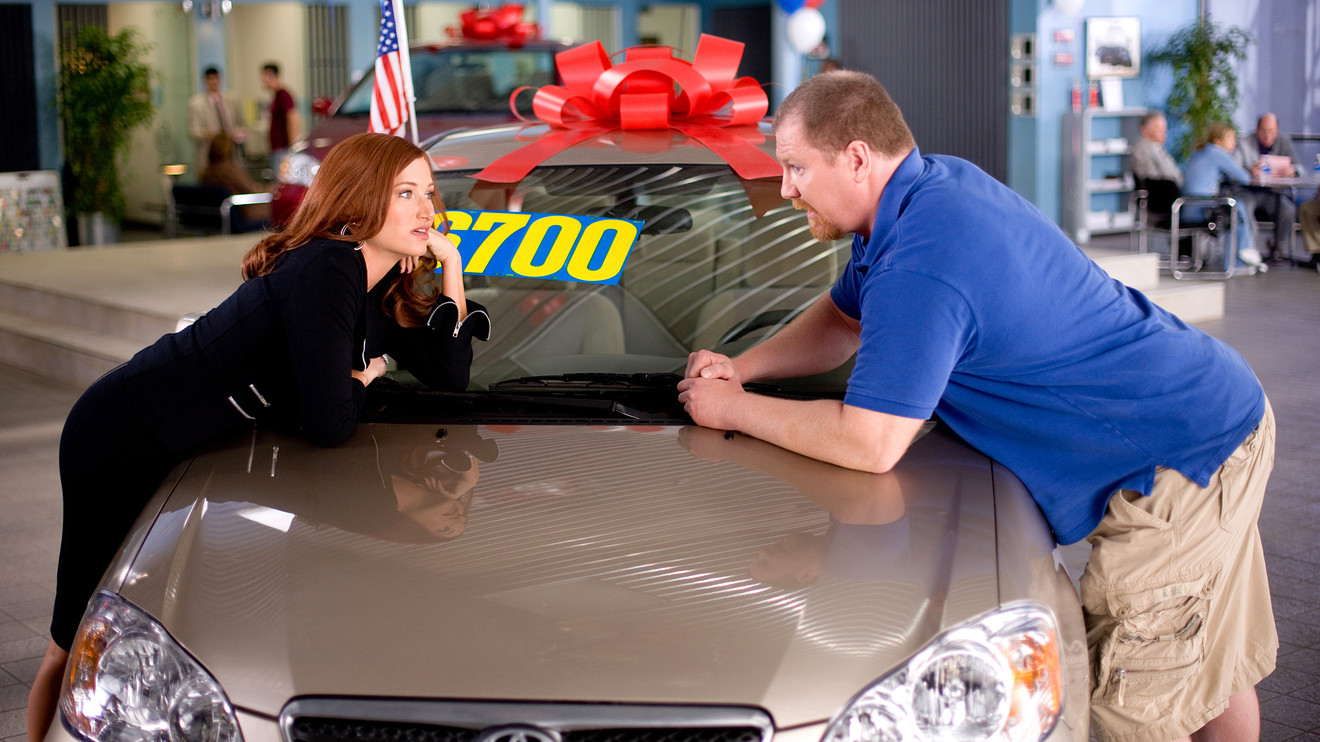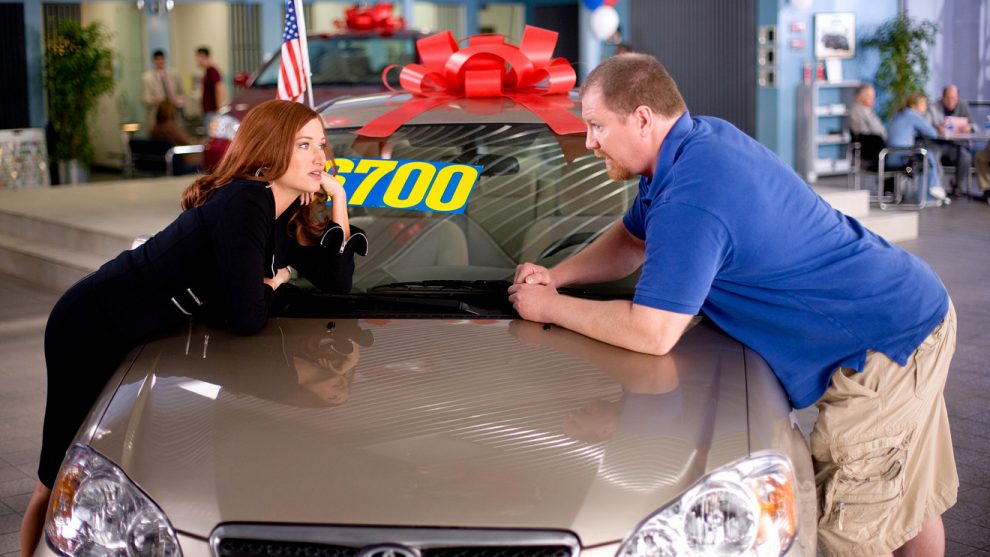
This article is reprinted by permission from NerdWallet.
Would you like to buy a reliable used car at a good price without hearing this cheesy pitch: “What will it take to get you into this car today?”
Several online car sellers are trying to remove sales lines like this along with other pain points car buyers face. These virtual used-car sellers not only ditch the dreaded price negotiations and shorten the buying process, but also offer lower average prices than brick-and-mortar dealerships, a recent analysis shows.
While car-buying experts see some potential risks, they say the future of car shopping may be buying online.
Comparing prices: online vs. on the lot
The analysis, conducted for NerdWallet by automotive research firm iSeeCars.com, found that the average used car price among virtual sellers was lower than the average listing price at brick-and-mortar dealerships:
- $2,048 lower compared with certified preowned cars.
- $202 lower compared with non-certified used cars.
That doesn’t mean buying online is always cheaper. At traditional dealerships, prices are usually negotiable, while online prices are often fixed. A skilled negotiator might end up with a better deal by visiting a dealership, but it requires navigating a sales experience that most buyers don’t enjoy.
Don’t miss: This guy racked up $16,000 in credit-card debt — 7 ways he found financial freedom
And while only franchised dealerships sell certified preowned cars backed by the manufacturer, virtual dealers’ vehicles are similar in that they’ve had a full mechanical inspection and come with a warranty. Online sellers also offer additional benefits such as a return policy and, in some cases, a test drive at your home.
Julie Blackley, communications manager for iSeeCars, says the lower prices among online dealers, along with these added benefits, surprised analysts. The study examined the 2018 listing prices of 12 million used cars, comparing those sold by brick-and-mortar dealerships to similar vehicles sold by three virtual car sellers — Carvana, Vroom and Shift — from model years 2012 to 2018.
Old vs. new ways of buying a car
The traditional used-car buying process requires negotiating the purchase price of the car, the trade-in value and the interest rate, says Toby Russell, co-CEO of Shift, which sells cars in most areas of California and Oregon. Then, he says, before the contract is signed, “they beat you up for two hours trying to sell you additional products you don’t want or need.”
Shift has fixed pricing, provides a trade-in value for your current vehicle and, in some areas, will bring cars to you for a test drive. This means a shopper can evaluate the car while driving on familiar roads in a relaxed setting.
Experts have long said consumers particularly dislike these aspects of traditional car-buying:
- Short test drives in an unfamiliar area with a chatty salesperson.
- Complicated negotiations of the car’s sales price, the trade-in value and the loan rate.
- A purchase process that can take four to six hours.
- High-pressure pitches for extras such as alarms and paint protection.
- No return policy if the buyer doesn’t like the car.
By contrast, buying from virtual dealers offers these benefits:
- Transparent pricing, financing choices and upfront trade-in price quotes.
- In some areas, test drives brought to your home.
- A return policy (from five to seven days with limited miles).
- Fixed pricing on additional warranties, gap insurance and other products.
- Contract signing in a relaxed setting, online or remotely.
The new players
Carvana, Vroom and Shift all offer their own financing for used cars and provide calculators to help shoppers pick loan terms and see a monthly payment. They also all have return policies and will take trade-ins.
Carvana boasts an inventory of 19,000 cars, according to its website. Buyers can have their purchased car trucked to their door or pick it up from a Carvana “vending machine,” a multilevel glass tower of cars.
Also see: The road to riches is this simple: Drive a crappy car
Vroom offers roughly 4,500 cars for sale and delivers cars to customers within the lower 48 states. A company spokesman said Vroom’s inventory favors upscale used cars with an average price of about $30,000.
Shift offers delivered test drives and the assistance of a car-buying concierge. Most of its 2,000-vehicle inventory comes from people selling the company their cars rather than cars purchased from auctions, says Russell.
A few trade-offs
While the pricing and convenience of online shopping are attractive, there could be downsides, says Ron Montoya, senior consumer advice editor for car site Edmunds.
Certified used cars from a franchised dealership come with manufacturers’ warranties, which Montoya says may be more comprehensive than warranties included by virtual dealers. It’s always a good idea, he says, to review what the warranty covers and how long it lasts.
Read: The ultimate car-buying checklist—for even the most experienced shopper
Similarly, for both brick-and-mortar and virtual dealers, Montoya recommends buyers research the current market value of a used car using an independent source.
He also says used-car buying is a “touch-and-feel” process, and making a choice based only on pictures might not provide the best result for consumers.
Still, Montoya and Blackley agree online sales could be the wave of the future. Montoya says, “The fact that you can automate the deal online — that’s the goal and that’s where we are headed.”
More from NerdWallet:
Philip Reed is a writer at NerdWallet. Email: [email protected]. Twitter: @AutoReed.











Add Comment